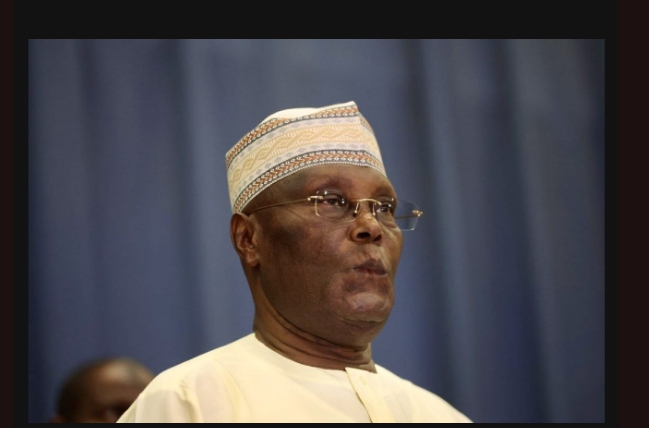Daniel Bwala, President Tinubu’s Special Adviser on Policy Communication, publicly urged former Vice-President Atiku Abubakar to accept that a 2027 presidential bid may not be divinely ordained and to instead join forces with the incumbent to leave a lasting legacy.
He further warned that any electoral partnership between Atiku and Peter Obi could collapse the “Obidient” movement and cost Obi his grassroots following.
Amid widespread defections of governors and senators into the APC, Bwala proclaimed that Tinubu’s political magnetism renders opposition coalitions “dead on arrival”.
Atiku himself has professed uncertainty about contesting in 2027, casting doubt on his sixth presidential run after defeats in 1993, 2007, 2011, 2015, and 2019.
This expose dissects Bwala’s salvo, Atiku’s electoral history, the dynamics of a potential Atiku-Obi alliance, Tinubu’s expanding influence, and what it all means for Nigeria’s opposition ahead of 2027.
Bwala’s Divine Determinism: Destiny vs. Determination
Daniel Bwala deployed theological rhetoric to argue that leadership in Nigeria is subject to God’s choosing, not personal ambition. On TVC’s Journalist Hangout, he declared:
“God gives power to whomsoever He chooses. And it seems… it may not have been the will of God for you to govern Nigeria.”
This framing serves a dual purpose: it undermines Atiku’s agency while elevating Tinubu’s incumbency to a near-sacred mandate. By couching political defeat in spiritual terms, Bwala shifts the discourse from policy failures to cosmic decree, a potent narrative in a deeply religious electorate.
Atiku’s Unfulfilled Quest: Six Bids, Six Defeats
Atiku Abubakar has sought the presidency on six occasions—1993, 2007, 2011, 2015, 2019, 2023—without success. His own admission in March 2025 underscores the uncertainty of another campaign:
“I don’t know if I will run for the 2027 presidency… there must be a viable platform.”
This stark self-reflection, reported in TheCable, contradicts persistent rumours of his candidacy and highlights the erosion of his base: Bwala pointedly noted that 60–70% of Atiku’s political lieutenants have defected ﹙or are defecting﹚ to the APC.
The veteran’s dossier of near-misses raises the question: is he a serial contender or Nigeria’s perennial “nearly man”? Al Jazeera once asked whether his sixth run would finally succeed—a query that history suggests remains unanswered.
The Perilous Peter Obi Alliance
Suggesting a marriage of convenience, rumours swirl of Peter Obi accepting the vice-presidential slot under an Atiku ticket. Bwala minced no words:
“Peter Obi will lose the majority of his followers the minute he drops his own ambition… Obidients had only one contract: that he will run for president.”
This warning echoes concerns first aired when Atiku and Obi initiated coalition talks in May 2024, a meeting that insiders described as exploratory and opaque.
Vanguard reports “Obidients” already bristle at any perceived sell-out, viewing Obi’s popularity as distinct from the PDP establishment. Bwala’s intervention thereby serves to fracture opposition unity, portraying Obi as politically vulnerable should he subsume his brand under Atiku’s banner.
Tinubu’s Grand Migration: Defections and Gravitas
Bwala highlighted a “gale of defections” into the APC, with governors, senators, and rank-and-file members deserting opposition ranks.
Indeed, recent weeks have seen high-profile cross-carpets from PDP and LP to APC, drawn by promises of ministerial slots, federal projects, and Tinubu’s rising political gravity.
In contrast to a disunited opposition, Tinubu’s coalition is expanding, reaching into regions once deemed PDP strongholds. This phenomenon lends credence to Bwala’s assertion that any opposition coalition is “dead on arrival.”
Implications for the 2027 Opposition Landscape
With Atiku’s prospects waning, Obi’s cautions mounting, and Tinubu’s star ascending, the opposition faces a credibility crisis. A cohesive front seems elusive.
The initial coalition talks often pivoted on strategic math: Atiku’s 6.98 million votes plus Obi’s 6.10 million in 2023 could have unseated Tinubu’s 8.79 million per AP News polling data. Yet internal fractures and competing ambitions have stymied robust alliance building.
As Bwala triumphantly proclaims APC’s irresistible magnetism, the clock ticks towards 2027 with little sign of a unified contender.










